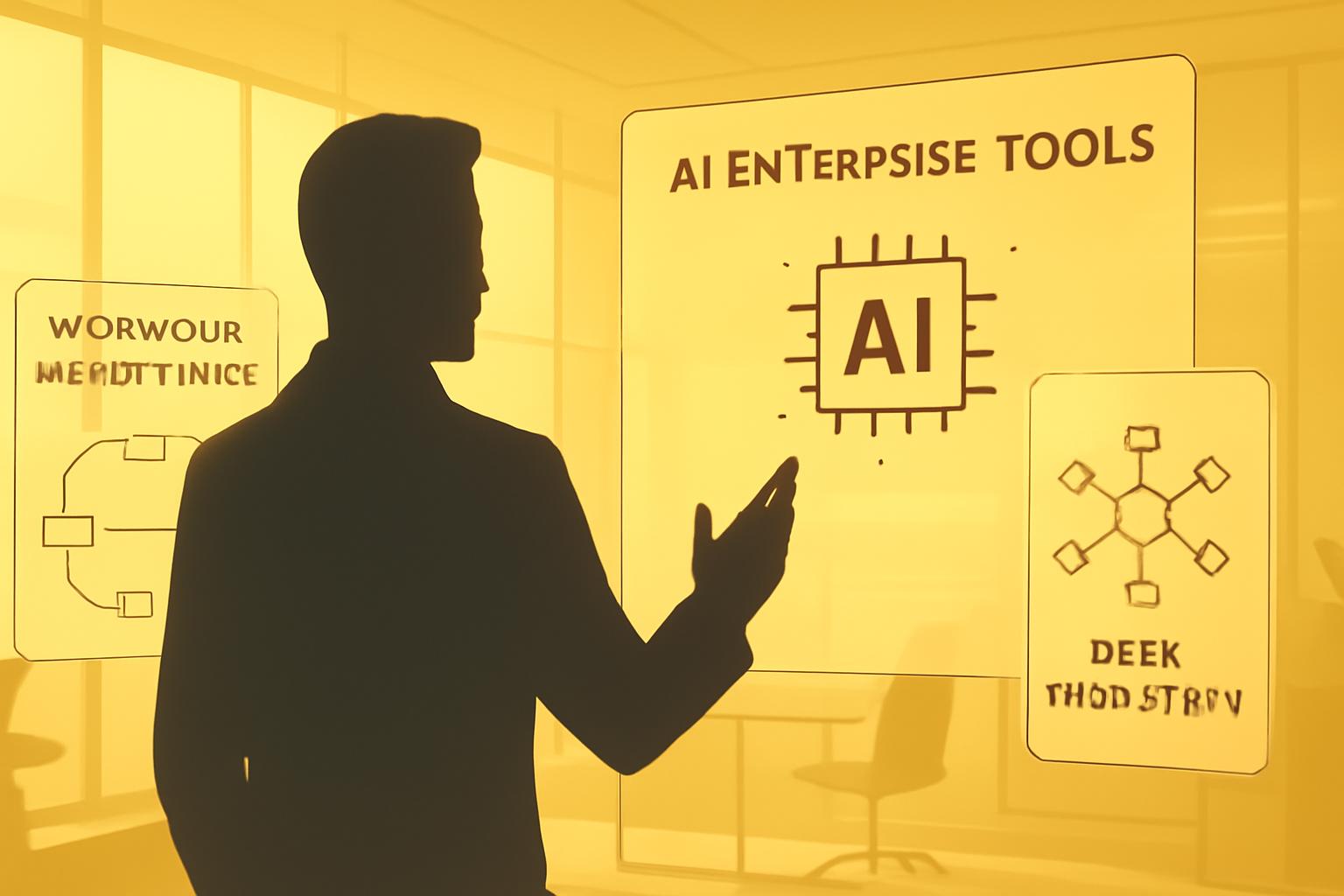Otter.ai CEO Pushes Company Beyond Meeting Transcription
Otter.ai’s CEO, Sam Liang, is steering the company toward a broader vision that goes beyond simply capturing meeting notes. The Silicon Valley-based startup revealed a new suite of enterprise tools designed to transform recorded meetings into a centralized corporate knowledge base, aiming to enhance workflow integration and deliver measurable business value.New Enterprise Tools Enable Seamless Workflow Integration
The newly launched product suite includes an API enabling custom integrations with widely-used platforms such as Jira and HubSpot. Additionally, Otter.ai introduced an MCP server that connects user data to external AI models, and a sophisticated AI agent capable of searching through meeting notes and presentations to extract relevant information efficiently.“We are evolving from a meeting notetaker to a corporate meeting knowledge base. This is a system record for conversations. It can help corporations scale their growth and drive measurable business value.” — Sam Liang, CEO of Otter.aiAddressing Inefficiencies Caused by Information Silos
Liang highlights that meetings hold the majority of a company’s knowledge, encompassing everything from sales call notes to marketing strategy discussions. However, without a centralized repository, this information remains fragmented, limiting organizational efficiency. “Inefficiencies often arise from information silos,” Liang explained. “Teams may be unaware of changes or plans made elsewhere, causing misalignment. Our permission system ensures that most non-confidential information is shared broadly, fostering transparency across teams.” Users retain control over access, allowing sensitive meeting notes to remain restricted, thereby balancing transparency with confidentiality.Privacy Concerns Amid Legal Scrutiny
Despite access controls, privacy remains a significant concern. Otter transcriptions capture all meeting audio, including informal pre- and post-meeting conversations, which may contain sensitive or private information. In August, Otter.ai became the subject of a class-action lawsuit alleging unauthorized recording of private conversations and use of data for training transcription models without user consent. While Liang declined to comment on the lawsuit specifically, he emphasized that such issues are widespread across the industry.“If they accuse us, then they could accuse everyone else, all the tools you heard about doing meeting notes,” Liang stated. “My view is that we are on the right side of history. We’re building this new AI revolution. If you want AI to help, you need to put AI in the meetings.”Industry Context and Competitive Landscape
Founded in 2016, Otter.ai initially operated in a niche market with few competitors. The AI boom beginning in 2022 spurred a proliferation of startups like Granola and Circleback, alongside established players such as Fireflies, intensifying competition in the meeting transcription space. Liang asserts that Otter.ai’s strategic pivot positions it distinctly from its peers by focusing on transforming meeting data into actionable knowledge rather than merely transcribing conversations.FinOracleAI — Market View
Otter.ai’s evolution signals a significant step in leveraging AI to enhance enterprise knowledge management. By integrating meeting data into broader workflows and enabling custom integrations, Otter aims to address a critical pain point: the fragmentation of organizational knowledge.- Opportunities: Expansion into enterprise knowledge management; differentiation through AI-powered search and integrations; potential to increase customer retention by embedding deeper into workflows.
- Risks: Ongoing privacy concerns and litigation may impact reputation; data security and compliance challenges; competitive pressure from emerging AI transcription and knowledge management startups.
Impact: Otter.ai’s strategic pivot enhances its market positioning by moving beyond transcription to become an integral part of enterprise knowledge ecosystems, though privacy and legal risks require careful management.













